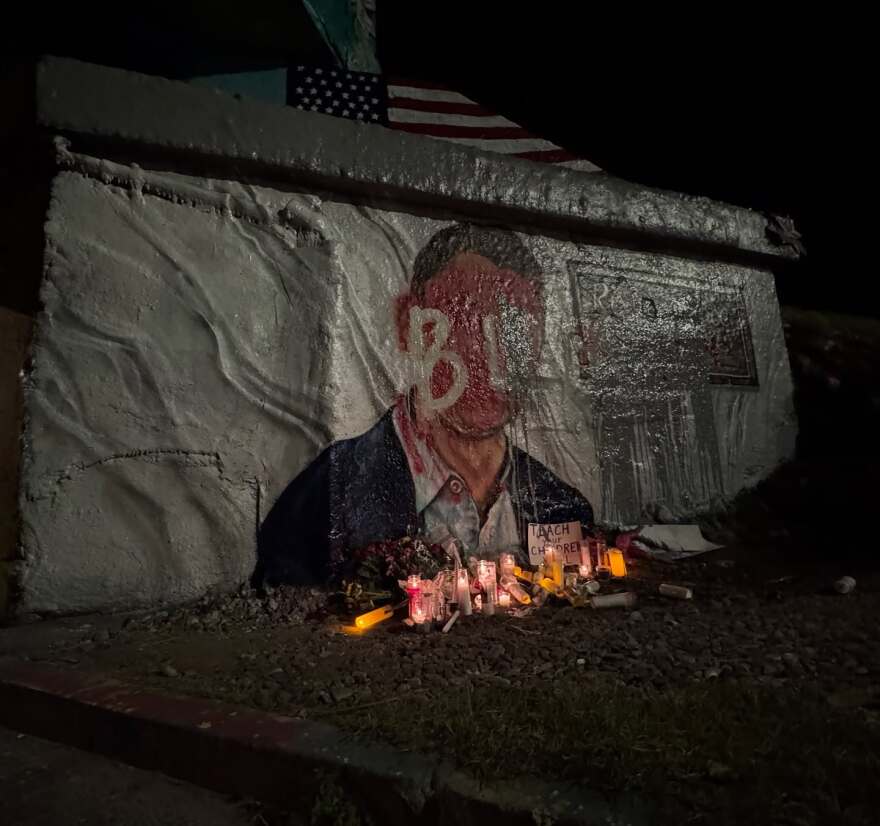Mayor D.C. Reeves said at his weekly press conference he has no plans to restrict demonstrations at Pensacola’s Graffiti Bridge, after an altercation during a weekend vigil renewed attention on how the city manages speech in public spaces.
“We haven't had any conversation at this point to say we aren't going to allow it,” he said. “If we were to see a serial issue, of course, that would have to be something we would consider.”
He added, “I don't think that that should be our first knee-jerk reaction."
Graffiti Bridge is a century-old CSX railroad trestle along 17th Avenue. City records show Pensacola amended its graffiti ordinance years ago to exempt the structure from anti-defacement rules, allowing the public to paint it. The site functions as a rolling community bulletin board for memorials, political messages, and art, drawing crowds to a tight, traffic-heavy corridor where gatherings can pose safety challenges.
According to the Pensacola Police Department, officers responded at 6:18 p.m. Sunday to a disturbance at the trestle, where a vigil in remembrance of slain conservative activist Charlie Kirk was underway. Police said a fight broke out and someone used pepper spray, striking one person who was transported to a local hospital with non-life-threatening injuries. The person who used the spray fled before officers arrived. The incident remains under investigation.
Asked whether the city might ban events at the bridge in response to the clash, Reeves emphasized coordination and peaceful expression over new rules.
“We try to work with organizers." Reeves said. " ... Whether I agree with them ... doesn't matter. But we need to be able to do it peacefully.”
Reeves also said the city does not currently require a permit for demonstrations like the weekend vigil and questioned whether a permit regime would withstand legal scrutiny.
“My guess is there's probably a legal issue with requiring some type of permit for someone to exercise their First Amendment right,” he said. Any move to change how events are handled, he added, “would not be initiated from my office. That would be initiated from our police department.”
Reeves’ comments came against a backdrop of recent disputes over expression on city property and in public rights of way. On Sept. 11, dozens of residents urged the ciity council to block a Christmas drag performance at the city-owned Saenger Theatre, pressing the city to intervene. Council members declined, citing contractual obligations and First Amendment protections for the performance. And in late August, state officials ordered Pensacola to remove the “Black Lives Matter” mural on A Street, citing Florida Department of Transportation standards for roadway markings. That directive was part of a broader state push to strip political or ideological messages from roads and has heightened scrutiny of speech and symbolism in public spaces. The Graffiti Bridge differs because the painting occurs on a privately owned trestle rather than on the roadway itself, and because the city carved out a legal exemption for the structure years ago.
The mayor framed the city’s goal as ensuring both safety and expression.
“I think you, as a citizen or a resident of the county or the city, should be able to share your thoughts and do it in a peaceful way, in a safe way without incident,” he said.


